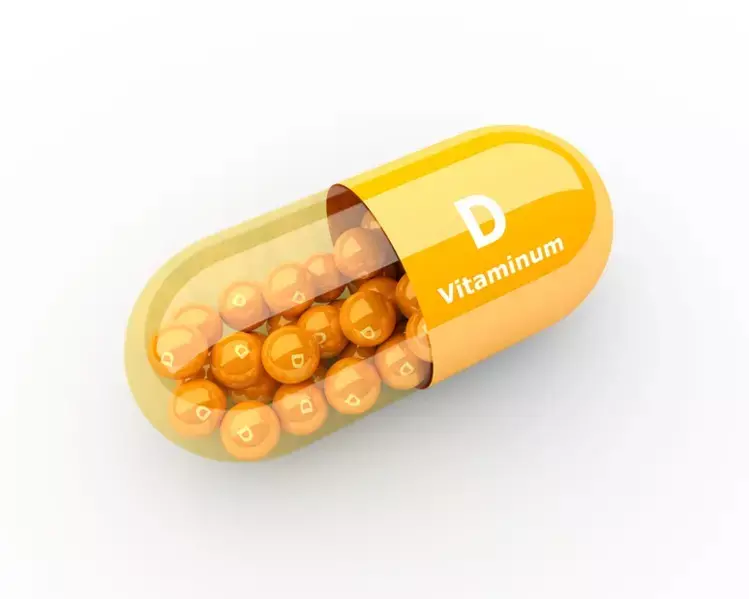- Home
- Medical news & Guidelines
- Anesthesiology
- Cardiology and CTVS
- Critical Care
- Dentistry
- Dermatology
- Diabetes and Endocrinology
- ENT
- Gastroenterology
- Medicine
- Nephrology
- Neurology
- Obstretics-Gynaecology
- Oncology
- Ophthalmology
- Orthopaedics
- Pediatrics-Neonatology
- Psychiatry
- Pulmonology
- Radiology
- Surgery
- Urology
- Laboratory Medicine
- Diet
- Nursing
- Paramedical
- Physiotherapy
- Health news
- Fact Check
- Bone Health Fact Check
- Brain Health Fact Check
- Cancer Related Fact Check
- Child Care Fact Check
- Dental and oral health fact check
- Diabetes and metabolic health fact check
- Diet and Nutrition Fact Check
- Eye and ENT Care Fact Check
- Fitness fact check
- Gut health fact check
- Heart health fact check
- Kidney health fact check
- Medical education fact check
- Men's health fact check
- Respiratory fact check
- Skin and hair care fact check
- Vaccine and Immunization fact check
- Women's health fact check
- AYUSH
- State News
- Andaman and Nicobar Islands
- Andhra Pradesh
- Arunachal Pradesh
- Assam
- Bihar
- Chandigarh
- Chattisgarh
- Dadra and Nagar Haveli
- Daman and Diu
- Delhi
- Goa
- Gujarat
- Haryana
- Himachal Pradesh
- Jammu & Kashmir
- Jharkhand
- Karnataka
- Kerala
- Ladakh
- Lakshadweep
- Madhya Pradesh
- Maharashtra
- Manipur
- Meghalaya
- Mizoram
- Nagaland
- Odisha
- Puducherry
- Punjab
- Rajasthan
- Sikkim
- Tamil Nadu
- Telangana
- Tripura
- Uttar Pradesh
- Uttrakhand
- West Bengal
- Medical Education
- Industry
Vitamin D intake may lower heart disease risk in dark skinned people: Study

Given population disparities in cardiovascular disease (CVD) prevalence, it is imperative to better understand individual characteristics that result in predisposition to the development of hypertension and overt cardiovascular disease.
Researchers have found in a new research that vitamin D supplementation may lower risk of heart disease among dark skinned people including African Americans. The inference is that such a simple step like making sure to get enough vitamin D could help millions of people reduce their risk of heart disease. The new study lucidated linkages between skin pigmentation, vitamin D and indicators of cardiovascular health.
The researchers will be presented the research at the American Physiological Society annual meeting during the Experimental Biology (EB) 2021 meeting, held virtually April 27-30.
"More darkly-pigmented individuals may be at greater risk of vitamin D deficiency, particularly in areas of relatively low sun exposure or high seasonality of sun exposure," said S. Tony Wolf, PhD, a postdoctoral fellow at the Pennsylvania State University and the study's lead author. "These findings may help to explain some of the differences that we see in the risk for developing blood vessel dysfunction, hypertension and overt cardiovascular disease between ethnic groups in the United States. Although there are many factors that contribute to the development of hypertension and cardiovascular disease, vitamin D supplementation may provide a simple and cost-effective strategy to reduce those disparities."
Vitamin D supplementation is a simple and safe strategy to ensure vitamin D sufficiency," said Wolf. "Our findings suggest that promoting adequate vitamin D status in young, otherwise healthy adults may improve nitric oxide availability and blood vessel function, and thereby serve as a prophylactic to reduce risk of future development of hypertension or cardiovascular disease."
Wolf noted that the need for vitamin D supplementation depends on a variety of factors, including where you live, how much time you spend in the sun, your skin pigmentation and your age.
Melanin, which is more concentrated in darker skin, is known to inhibit the process our bodies use to make vitamin D in the presence of sunlight. As a result, darkly pigmented people may make less vitamin D, potentially leading to vitamin D deficiency.
For the study, Wolf and colleagues measured skin pigmentation, vitamin D and the activity of nitric oxide in the small blood vessels beneath the skin in 18 heathy adults of varying skin tones. Nitric oxide is important for blood vessel function, and reduced nitric oxide availability is thought to predispose an individual to the development of hypertension or cardiovascular disease. Previous studies suggest vitamin D helps to promote nitric oxide availability.
Study participants with darker skin had lower levels of vitamin D and lower nitric oxide availability. In addition, the researchers found that lower levels of vitamin D were related to reduced nitric oxide-mediated blood vessel function. The results align with those of a separate study by the same research group, which found that vitamin D supplementation improved blood vitamin D levels and nitric oxide-mediated blood vessel function in otherwise healthy, young African American adults.
Source- Experimental Biology meeting 2021
Dr Kartikeya Kohli is an Internal Medicine Consultant at Sitaram Bhartia Hospital in Delhi with super speciality training in Nephrology. He has worked with various eminent hospitals like Indraprastha Apollo Hospital, Sir Gangaram Hospital. He holds an MBBS from Kasturba Medical College Manipal, DNB Internal Medicine, Post Graduate Diploma in Clinical Research and Business Development, Fellow DNB Nephrology, MRCP and ECFMG Certification. He has been closely associated with India Medical Association South Delhi Branch and Delhi Medical Association and has been organising continuing medical education programs on their behalf from time to time. Further he has been contributing medical articles for their newsletters as well. He is also associated with electronic media and TV for conduction and presentation of health programs. He has been associated with Medical Dialogues for last 3 years and contributing articles on regular basis.
Dr Kamal Kant Kohli-MBBS, DTCD- a chest specialist with more than 30 years of practice and a flair for writing clinical articles, Dr Kamal Kant Kohli joined Medical Dialogues as a Chief Editor of Medical News. Besides writing articles, as an editor, he proofreads and verifies all the medical content published on Medical Dialogues including those coming from journals, studies,medical conferences,guidelines etc. Email: drkohli@medicaldialogues.in. Contact no. 011-43720751


